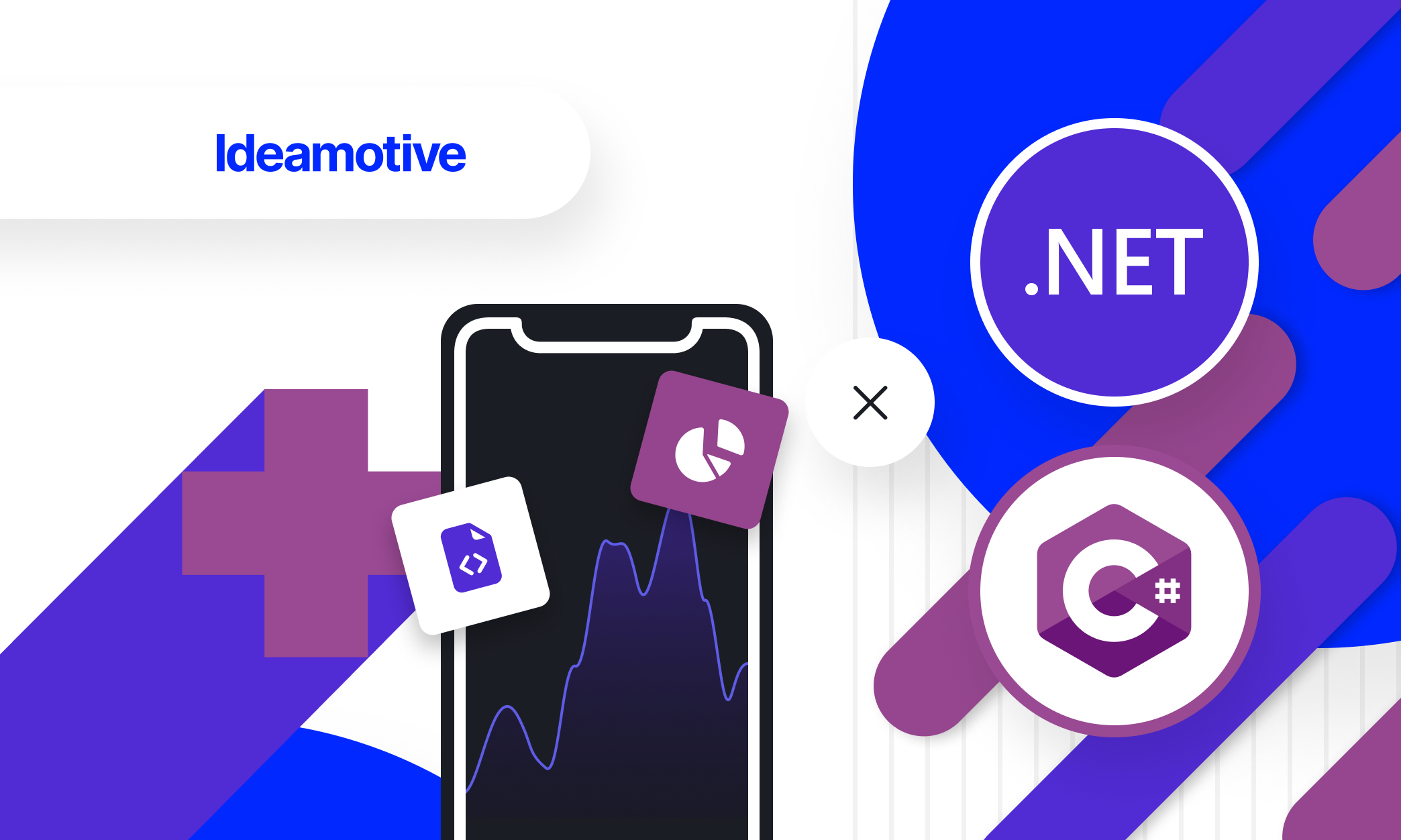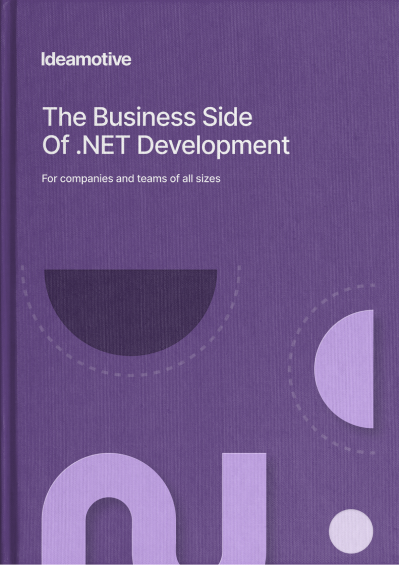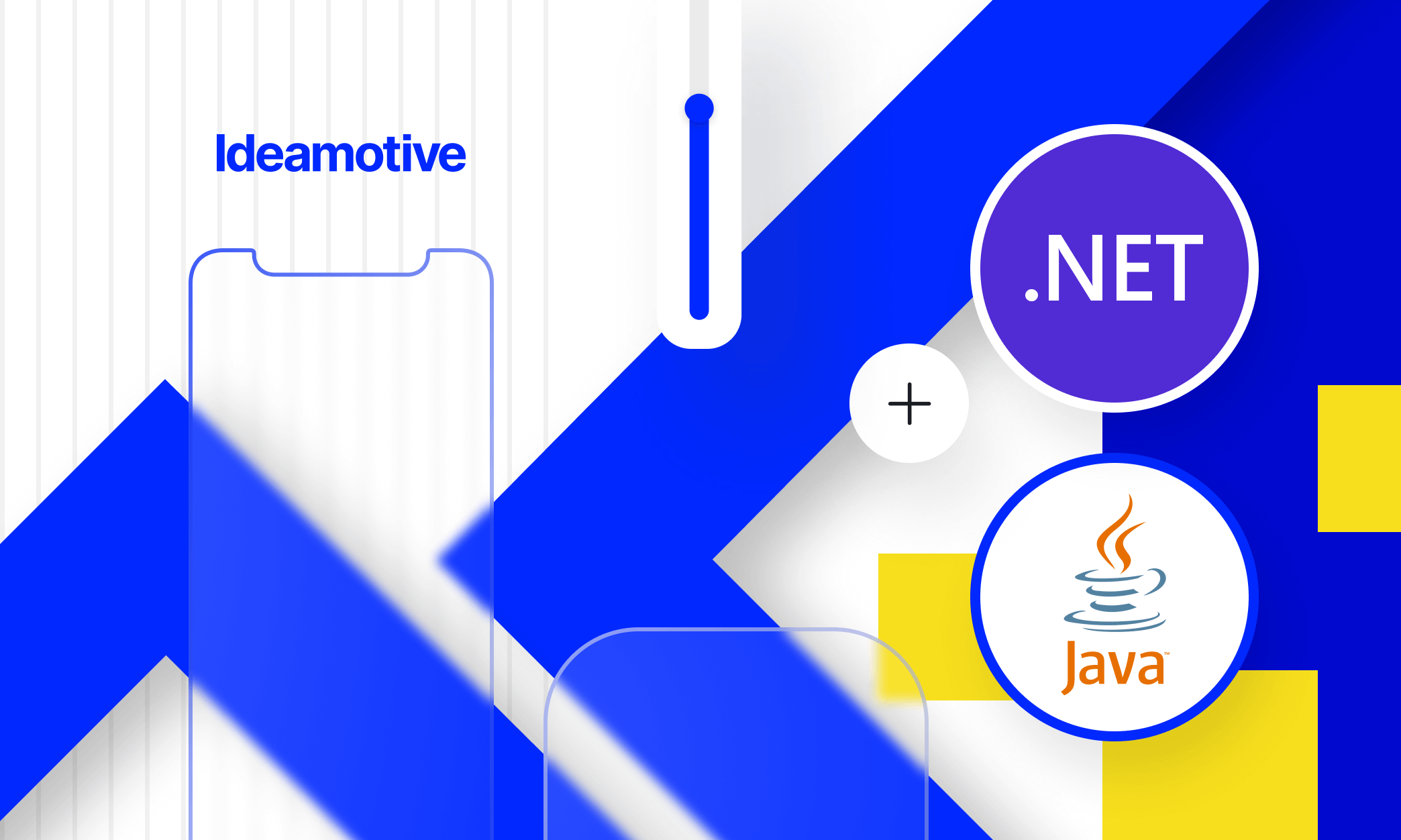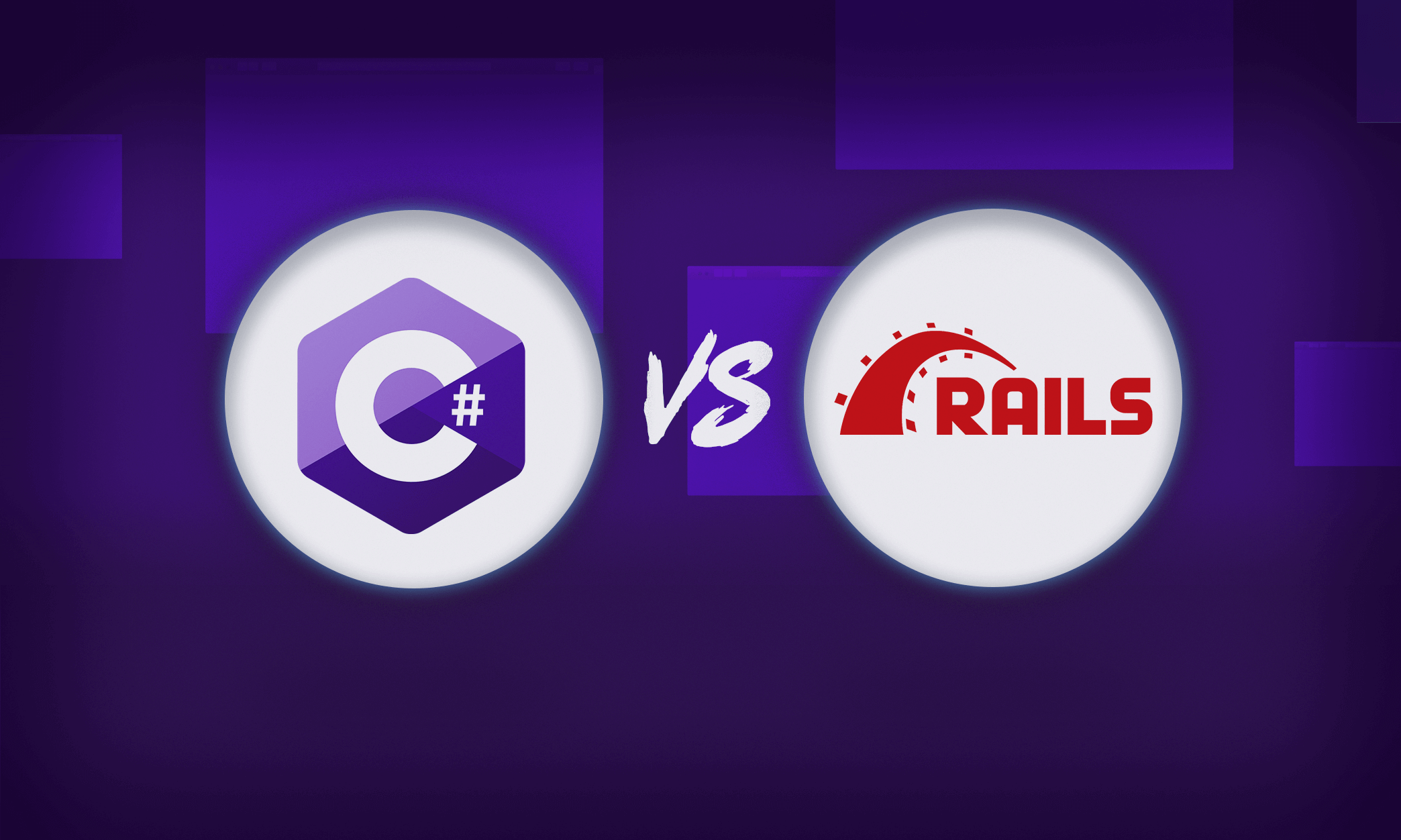C# and .NET are both important instruments of modern software development: the first one is a general-purpose programming language, while the second is a framework (and a large stack of technologies) that supports the use of C#. Both are developed and backed by Microsoft.
Obviously, those are not things of the same scale, but they were originally created to work together in a very integral and holistic manner, and that’s why their conceptions are closely interconnected on different levels. It doesn’t really make sense to put .NET vs. C#, because comparing them is pretty much like comparing apples vs. oranges (or, probably, like comparing a plane with its engine?)
Are C# and .NET devs the same kind of programmers?
One of the possible reasons you might be looking for a .NET vs C# comparison is because of a widespread mix up of those things in many developer job titles posted on vacancy boards on the web: employers might be looking for either C# or .NET developers separately as if they were completely different types of specialists. Well, it’s true and not true at the same time, but before we delve into details and sort the things out, let’s articulate the key points:
- C# is a popular programming language: it is compiled by the means of C# compiler into a common intermediate language (CIL).
- .NET refers to a giant library of programming classes (so-called “framework”), and a runtime environment that interprets and executes the CIL code. At the same time, C# is not the only language that can be translated into CIL — .NET is able to consume a much bigger set of languages.
As you can see, C# is an essential part of the conception, but at the same time, .NET is an entity of a larger scale. That’s why if someone is looking for a “C# developer”, then such a developer must surely know a thing or two about .NET (that is an environment to execute C# code), but if you stumble upon the term “.NET developer”, it might imply an engineer of a higher proficiency level, a so-called full-stack developer that is capable of planning and executing projects of greater scope. To get a clear understanding of both techs, please go on reading this article.
What is .NET?

.NET (Dot Net) is an open-source, cross-platform + cross-language framework used for creating different types of applications. .NET is a runtime for executing multi-language applications that facilitates access to Windows functions and compatibility between system components written in different languages.
It’s supposed to be a global solution covering all sorts of development needs, including web, mobile, IoT, and many other things. That’s why .NET supports various types of editors, libraries, and languages utilized in complex mobile, desktop, or web-based development. Dot Net was launched by Microsoft and basically maintains coding and operation in C#, F#, Visual Basic, and some other languages. It can be implemented for websites and servers on a variety of operating systems. .NET features a well-elaborated architecture, including a set of important components, like the class library, Common Language Runtime (CLR), Common Language Infrastructure (CLI), and others.
The current version of the .Net platform is .NET 5, which is an advanced revision of .NET Core. It’s a new take on the .Net environment because it aims at delivering a universal .NET runtime + framework that is capable of being applied to all kinds of development needs, offering uniform runtime behaviors and developer experiences. Specifically, it boosts the powers of .NET by combining the best features of .NET Core, .NET Framework, Xamarin, and Mono. Owing to these improvements, you’re allowed to build different products sharing a single code base, so your project’s code and files have the same quality traits, readability, syntax, and logic no matter which category of software you’re building.
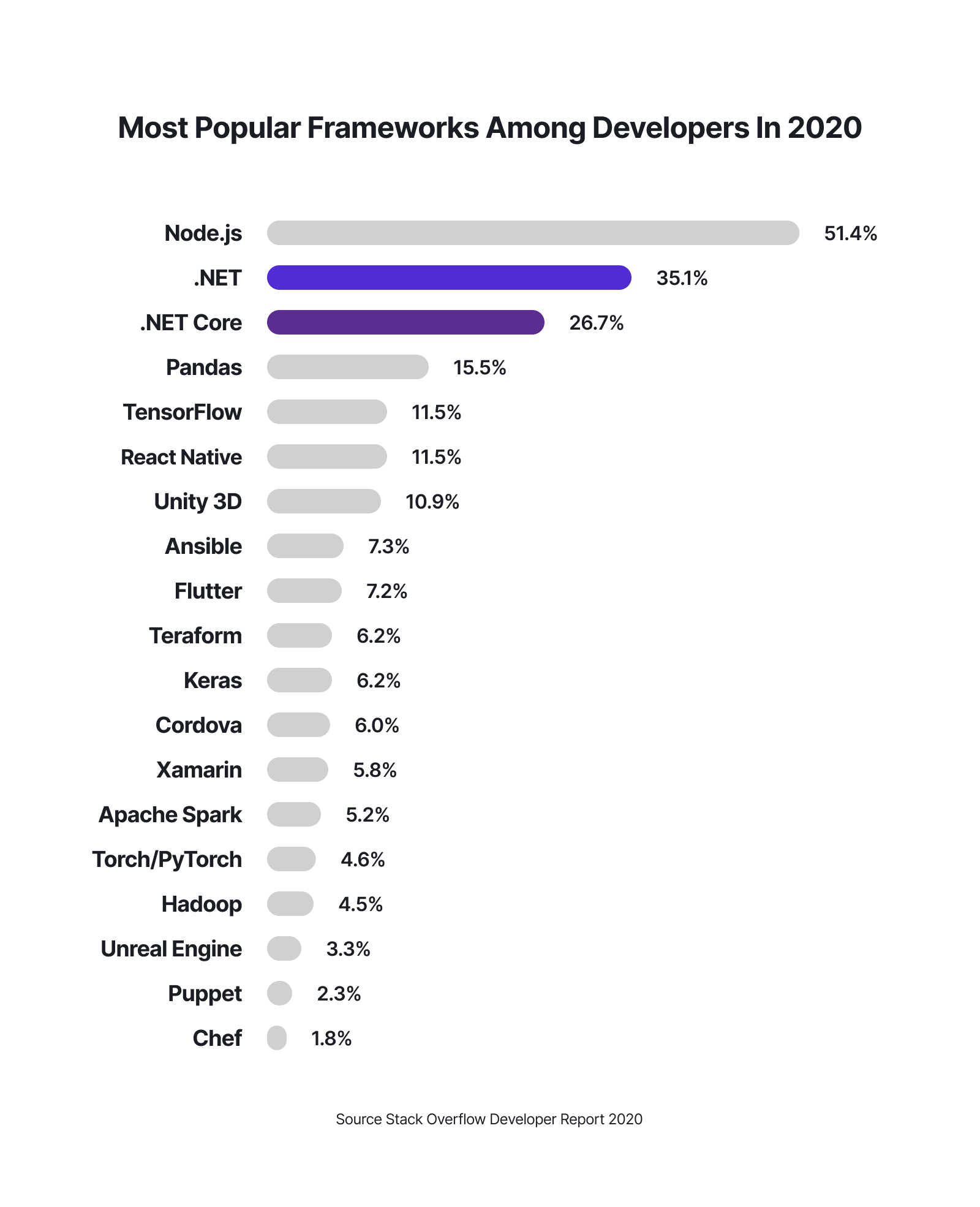
What is C#?

C# (C sharp) is a simple, multi-paradigm, object-oriented, and type-safe programming language licensed under the General Public License (GPL), initially developed for the needs of .NET. It comes from the C family of languages, so it’s easy to learn for those developers that are already into C, C++, Java, and JavaScript. It was also developed by Microsoft out of the existing conceptions of C & C++. It’s considered to be simpler than Java or C++ and is highly versatile, allowing programmers to develop a great variety of projects and applications.
Most C# coding is performed within the .NET environment, but it’s also possible to utilize C# without .NET via an open-source edition of the CLR. As far as the C# object model corresponds to the .NET object model, you can develop a project in C# just by the powers of .NET libraries. Since it’s a compiled programming language, developers use it to build desktop Windows applications and create client-server applications, XML Web Services, secure applications, etc.
Similarities: C# and .NET
There are a few major areas of C# application, which also match the most common uses of the .NET platform:
- Website development
- Windows applications
- Games (desktop/mobile)
Besides these general categories, you can use C# for mobile apps, desktop apps, cloud-based services, websites, enterprise software, etc. When it comes to the development of dynamic websites on the .NET platform, C# works as a versatile and fully functional instrument, which can operate within a Microsoft-developed architecture or other open-source frameworks. Owing to the fact, this language is object-oriented, websites built with its help, are highly efficient, easily scalable, and easy to maintain.
C# was initially created by Microsoft for powering Windows applications, so it’s obvious why C# is normally used for the development of desktop software. For the best possible execution of C#-written programs, the Windows .NET framework should be operating on the computer: it’s a pre-installed option coming with almost all Windows editions, so you don’t have to worry about accessibility issues.
C# is rated as one of the most popular programming languages in the game development industry. C# seamlessly integrates with the famous Unity engine (one of the top gaming engines on the market). Thanks to cross-platform technologies, like Xamarin, C# can run on virtually any mobile device or console available out there, so game codes developed in C# are universal and compatible with any platform ensuring its convenience for this type of business.
Difference: How can .NET vs C# be compared?
So why are C# and .NET developers not the same type of specialists? Let’s articulate the areas where both techs can be somehow compared and what makes them different. Here are some general points that explain the major difference between the two subjects:
- C# is a multi-purpose programming language and that’s why you can develop software adapted for various platforms, including not only for Windows but also iOS (via Xamarin) and Linux (using .NET 5 or via Mono). .NET framework is a complex set of modules that is capable of running, compiling, and bringing together different languages, including C#, but it runs in Windows environment only.
- C# is heavily utilized when developing in ASP.NET. This framework extends the .NET-powered development toolbox with libraries focused on creating everything web-based: apps, websites, and services. So if you stumble upon a job posting mentioning a “C# developer”, assume that it might be a synonym referring to a Window-based web developer.
- C# developer doesn’t exclusively mean a Windows-oriented dev: as we mentioned above, owing to different compilers, such as Mono, C# can work on a variety of platforms including Linux, and thus .NET is not a must to develop in C#. It makes it a popular choice in game development, so “C# programmer” can refer to a game developer of a certain kind too.
- .NET framework has a huge integrated collection of Microsoft-supported libraries, which allow unveiling the maximum potential of C#. .NET framework defines the rules and supporting libraries that other languages shall use. It also helps you to call variables written in another language to be used in a different language.
FAQ: .NET vs C# Performance and Features
Let’s check a list of the main takeaways about .NET and C sharp in questions and answers that are frequently asked about both technologies.
Is C# a fast language to code?
C# is statically typed, easy-to-read, and lets you make use of the simplicity that underlies the core idea of the language. C# developers are lucky to save a lot of time thanks to optimized handling of large code arrays that are repeatedly used. Another time-saving feature is a minimized routine of cleaning the code from minor errors.
Is C# good for beginners?
There’s a bearable learning curve, especially for those who are already familiar with a language from the C family, such as C++, which is a very popular subject in school classes or higher education programs. It’s quite guaranteed that you’ll spend less time learning C# in comparison to any other more difficult programming language.
Is .NET good for beginners?
.NET is a mighty “elephant” that none of the beginners can digest at once: it covers the whole way from frontend to backend with corresponding languages and tools behind each layer. For example, ASP.NET is used for the backend, and C# / VB.NET are used for the frontend. An engineer who’s skilled enough to operate the full stack of .NET technologies is called a Full Stack .NET Developer, and as you already know, they should have enough expertise in all the fields, including C#, as .NET comes with thousands of classes right out of the box.
Should you learn C# in 2021?
C# is absolutely relevant to the business and highly demanded in 2021. Owing to the powerful advantages of the .NET platform, and Microsoft taking care of it, C# is actually the number 5 programming language in terms of popularity.
Should you learn .NET in 2021?
Absolutely, on the one hand, if you’re interested in building a career as a C# developer, you should deepen your knowledge of the .NET as it is the main platform for C# development and the better you know it, the more you increase your chances of getting a better job (or completing your projects with better efficiency). On the other hand, learning other technologies included in the .NET stack will let you achieve the status of a full-stack .NET developer.
What are the most important C# highlights?
- C# is completely object-oriented.
- C# is a compiled language (which makes it faster than interpreted languages.)
- C# has a tremendously deep potential: from server apps to mobile games.
- It’s well-adapted to the Windows environment.
- Has dynamic variables, indexers, and implicit inheritance.
- Extends support to the auto garbage collection process.
- Supports native resource-management idioms.
- Supports enumeration, Boolean conditions, multithreading.
- It is designed for Common Language Infrastructure (CLI).
- Supports assembly versioning and conditional compilation.
- Security: before a hacker can get to the critical components of your software, they have to decompile (or crack) the code, which is highly difficult.
What are the most important .NET highlights?
- One of the main ideas behind the .NET framework is supporting multiple languages: it was established with the idea that various Microsoft languages should be equally capable of accessing all the OS functions, ensuring the same level of usability for all of them.
- .NET is a runtime for executing applications: all computer languages utilize the same uniform abstract syntax tree, runtime engine, and, of course, Common Intermediate Language, which is a common communication medium.
- It simplifies the interoperability between modules written in various languages.
- All .NET languages share the platform functions such as cross-language inheritance, garbage collection, exception handling, and debugging.
What about the .NET and C# communities?
One of the obvious advantages of .NET is a rapidly growing .NET community. Such popular sites as GitHub or Stack Overflow will give you directions or answers to a great number of either junior or advanced questions and will share some useful code snippets, tips, and tricks with you. C# is one of the most popular languages with a 6M+ community, so there is no shortage of learning materials, forums, libraries, and other platforms where you can share the experience, borrow some ready solutions, or brainstorm specific issues.
Talent pool: C# and .NET
The worldwide numbers of C# developers are dynamically growing for a few years in a row: from 6,2M in 2018 to about 6.5M in 2020. About 31% of developers have reported that they had a certain experience with coding in C#. The most popular fields of employment for C# developers are gaming, desktop software development, and AR\VR applications. It’s a pretty numerous group, and that’s why there will be no expected deficit in C# engineers any time soon. If we speak of .NET statistics alone, it’s among the most used frameworks out there: .NET and its newer incarnation .NET Core are occupying about 60% of all library or framework usage cases in the world. Of course, a group of full-stack .NET developers is a few times smaller inclusion within the general pool of C# programmers.
Advantages of C#:
- It integrates well with Windows and can be easily deployed on the network.
- Doesn’t require complex configurations before it runs in your Windows environment.
- It’s easy to find C# developers if you’re going to enlarge a team.
- Employs a relatively small number of keywords.
- Thanks to strict rules of how static codes are written, C# programs are very consistent.
- Since it’s a compiled language, the code is kept on a public-facing server in a binary form. If your server gets hijacked by a hacker, they won’t be able to view or change your source code.
Disadvantages of C#:
- Certain syntax nuances: you have to put semicolons (;) at the end of each code line and get used to case sensitivity and the widespread presence of curly-brackets { }, which sometimes might spoil the readability.
- Compiling process: If you bring even minor changes in your code, you have to recompile and redeploy the whole application.
- As it is closely connected to .NET, C# lacks the benefits of cross-platform flexibility.
Advantages of .NET
- Since it’s a modular framework, it’s easy to add/remove certain components.
- Reliability + consistency: provides different system services, like memory management, execution of threads/code, verification of code safety, compilation, etc.
- Guarantees code robustness via a strict type-and-code-verification system, the common type system (CTS).
- The runtime can be hosted by server-side apps, such as Microsoft SQL.
- Includes a powerful set of standard class libraries, including graphic rendering, database interaction, and XML document manipulation.
- Provides built-in support for web services standards.
Disadvantages of .NET
- Limited range of integrated development environments.
- Up until recently, the .NET Framework ran only on Windows. However, it turned now into a legacy solution and will stay at version 4.8 with only small updates while the newest .NET (.NET Core renamed into .NET 5) runs on any OS.
Some popular business applications developed with .NET and C#
Microsoft Visual Studio, Paint.NET, Open Dental, KeePass, FlashDevelop, Banshee, NMath, Pinta, OpenRA.
Cost of hiring C# and .NET programmers
In the U.S., the minimum annual wage of a C# developer is about $70k USD. But it may grow higher depending on the experience and industry: up to $90-100k USD. The numbers are getting considerably lower when it comes to Eastern European countries (Poland, Ukraine, Romania, etc.) — $20-30k USD per year. If to speak about a full-stack .NET developer, their annual wage may go as high as $100-150k per annum in the U.S. The full-time or hourly rates are also lower for other continents and developing countries. Often, it makes sense to outsource the development “abroad” or to the companies that staff their teams with remote employees for economical reasons (it lets you decrease the cost of a project development a few times in comparison to the U.S. or Western Europe).
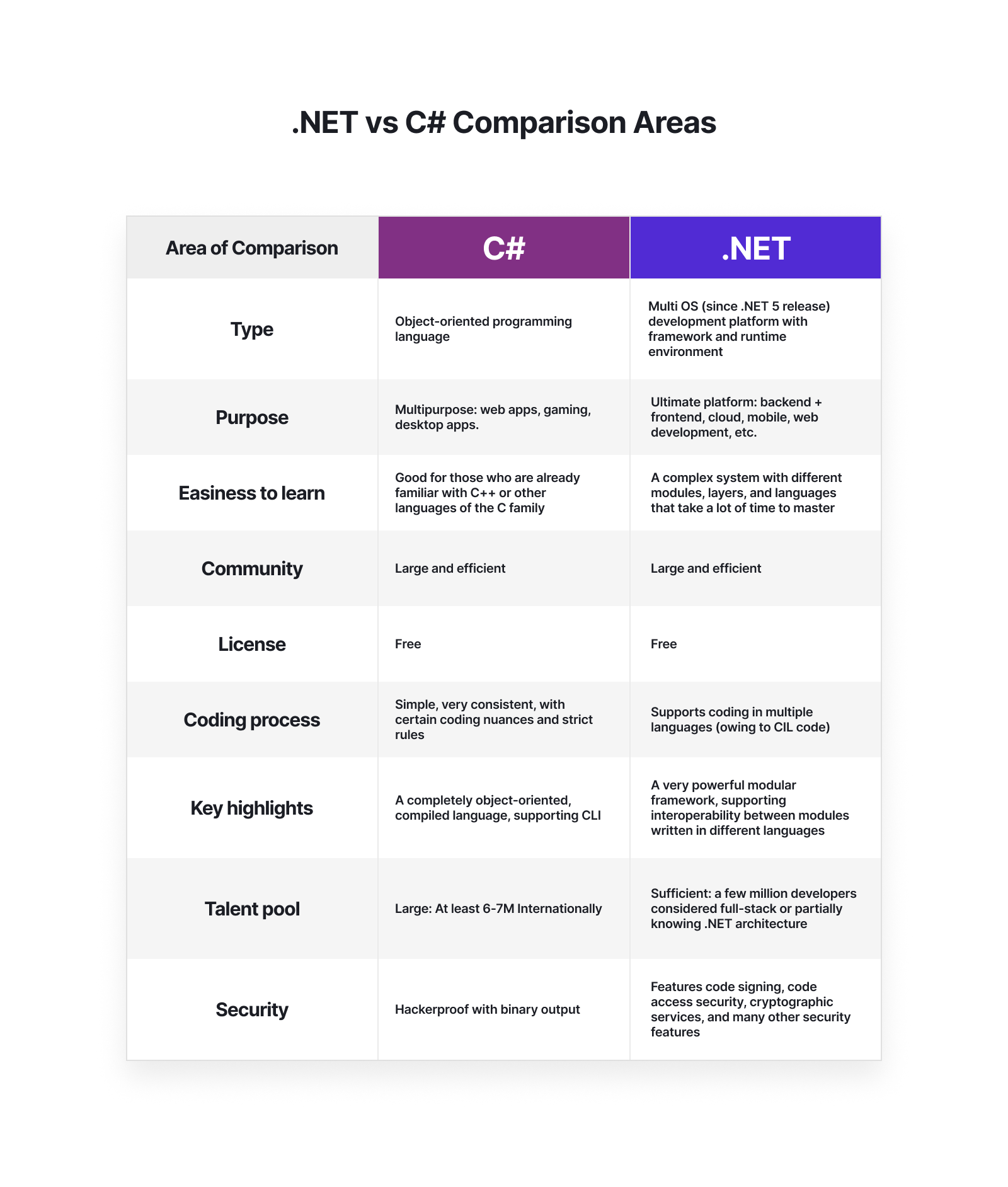
Final Word
If you are still not sure of what technology to choose for your project, feel free to discuss your business idea, project scope, or product with us. Our highly skilled software consultants will provide you with all-around assistance, including the possibility of further project development with our team at a reasonable price. Our team features experienced specialists in C# and .NET who are zealous to pick up your project and bring your ideas to life in compliance with the best industry standards!
